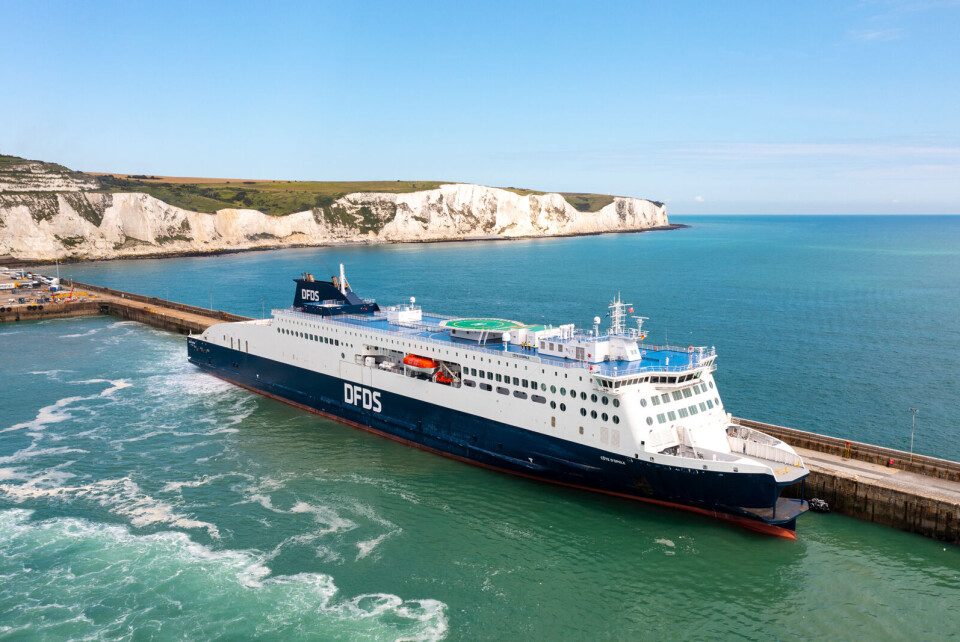-
New rules for British dual nationals entering UK: How are those in France affected?
They will need to visit on UK passport or with £550 document
-
Trump calls for Marine Le Pen to be freed (but she is not in prison)
US president said her embezzlement court case was a ‘witch hunt’
-
France’s €3 book delivery fee challenged in EU court by Amazon
Online retailer said measure is protectionist and ‘in breach of EU laws’
Cross-Channel ferries prepare for 2022 bounce-back year
English Channel ferry firms are hoping to feel the boost of Calais' large port extension from October this year as well as injection of funds and new ferries in the fleet

Cross-Channel operator Brittany Ferries is hoping for a ‘bounce-back year’ in 2022 with a fourfold increase on 2021 passenger numbers and a €25million injection from a new partner to boost its freight service.
Other firms which operate the Dover- Calais route are buoyed by a huge port extension – and associated new 1,000m² duty-free shop – at Calais which goes into operation in October and means it can now handle the next generation of larger ferries.
Brittany Ferries, relying on passengers for 80% of its income up to now, was hard-hit by Covid travel restrictions over the last 18 months and had to suspend several crossings between Ireland, France, England and Spain.
Now the firm has attracted new investment from French shipping and container giant CMA CGM to improve its freight capacity.
“This is great news for us,” said communications head Nigel Wonnacott.
“We are now in a much stronger position to recover in 2022.”
The firm expects sales of 530,000 tickets for 2021, compared to 750,000 last year or a pre-pandemic level of 2.5 million, but expects to top two million again in 2022.
Another positive sign is its order for two new liquified natural gas-powered (LNG) ships, due to join its fleet in 2022 and 2023. They will operate between the UK and Spain.
Brittany Ferries does not ply the Calais-Dover route but ferries that do can now take advantage of the huge new extension to what was already continental Europe’s largest passenger port.
Six years of construction work, costing €863million, have resulted in a new three-kilometre dyke and three new ferry berths. It doubles the previous capacity of the port that, on average, welcomes 10 million passengers a year, in addition to its extensive freight operations.
A major attraction will be the 1,000m² duty-free shop, where visitors heading for post-Brexit England – or those over on day trips – will be able to stock up on cheaper alcohol or cigarettes.
Investment in the port already seems to be paying off. In June, Irish Ferries became the third company to operate Dover-Calais ferries, joining P&O and DFDS.
Xavier Bertrand, president of the Hautsde- France region, said at the inauguration of the extended port in September: “Do you think Irish Ferries would be here if it wasn’t for this new port and these new possibilities? Never in a million years.”
In addition, DFDS has assigned a new ferry, Côte d’Opale, to the route. The ship made its maiden voyage to Dover in August and is the longest vessel currently plying that crossing, making five return trips per day with a capacity of 140 lorries, 250 cars and a maximum of 1,000 passengers.
Peder Gellert, head of DFDS’s ferry division, said the company is seeing a gradual return to normality and hopes the new ship will spur further bookings.
“Her arrival is a signal that people can start to think about moving again,” he said.
Related stories
Half-term bookings for France surge after England travel update
UK-France: No date set for Eurotunnel frequent traveller scheme return
























